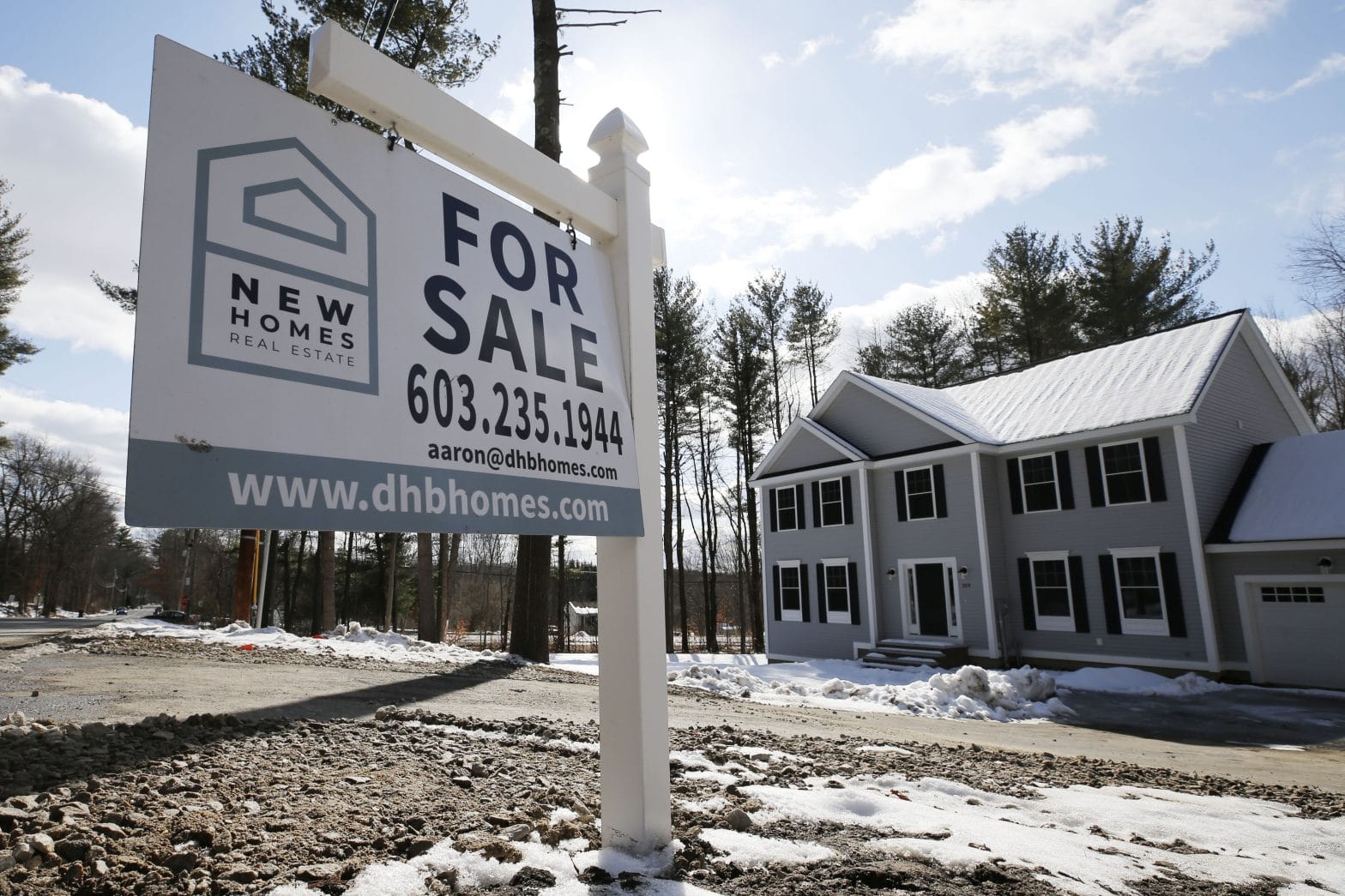Real Estate Industry Hoping for Stimulus Aid for Non-Depository Lenders

WASHINGTON – Even before Congress had passed the third economic stimulus package of the coronavirus era on Friday, talk had turned to what should be included in a currently hypothetical, but no less likely, fourth stimulus bill.
Among the welcome steps taken so far are decisions to delay the tax deadline, defer interest on student loan payments, provide loan and grant assistance to large and small businesses alike, and establish updated paid sick leave policies to help the sick and their employers weather the storm.
Reaching agreement on many of these provisions was easy. In others, it was not nearly so.
Going forward, the choices will only get tougher.
Among these is what to do about a proposal to temporarily suspend mortgage payments.
On its face, mandated forbearance, allowing borrowers to temporarily lower or pause payments, seems like a winner. It’s a way to easily free up funds for homeowners and the big banks have the ability to weather the reduction in payments due to the liquid nature of their business.
Caught in the middle, however, is a class of businesses, non-depository lenders, who could be in real trouble, given the limited liquidity that is part of their business model.
This is no small consideration given the fact non-depository services open the home-ownership door for many American families, including those in the nation’s minority communities, said Antoine Thompson, executive director of the National Association of Real Estate Brokers, during a recent interview with The Well News.
“Traditional depository institutions are best represented by your neighborhood bank. You put your money in. You save your money there. You get a mortgage there,” Thompson said.
“As their name implies, non-depository institutions, which can be anything from a traditional mortgage company, like ABC Mortgage, to an online entity like Quicken Loans, don’t have that constant in-flow of depositor money, he continued.
“Many of them simply originate a mortgage and then sell it to a servicer or a traditional bank, and so liquidity is an important concern for them,” Thompson said. “And, as I said, it’s an important concern for the rest of us, because they are often most active in underserved and rural markets, and we want to make sure these institutions remain viable.
“The last thing we want as a result of the COVID-19 crisis is for them to scramble for cash and go out of business,” he concluded.
Non-depository Lenders Serving Larger Portion of Market
It wasn’t all that long ago that three banks — Wells Fargo, Bank of America and Chase — originated more than half of all mortgages issued in the United States.
Over the course of the past decade, that market dominance has dropped dramatically, so much so that by 2017, those three banks — and all of other U.S. banks put together, originated just 40% of all mortgage loans, according to Mortgage Daily, an industry trade publication.
In the meantime, non-depository lenders have seen their percentage of the market grow.
Mortgage Daily reported that in 2017, 51% of all mortgages came from non-depository lending institutions like Quicken Loans and PennyMac.
Behind Wells Fargo ($212 billion) and Chase ($108 billion), Quicken ($86 billion) was the third-largest mortgage issuer in 2017. In the fourth quarter of 2017, PennyMac issued $17 billion in loans and was the fifth largest lender overall, the trade publication said.
“That’s why this is such a critical issue and why we hope there’s support for these institutions in the next stimulus package,” Thompson said. “We don’t want to close the door to home ownership on the growing number of people who have come to rely on them.”
Pandemic Ushers in Period of Readjustment
With that, the conversation turned to the current state of the real estate market, which Thompson sees as being in a hopefully short-term period of readjustment.
“What you’re seeing is a few different things,” he said. “On the one hand, given concerns of the spread of the virus, sellers are delaying listing their properties — and that just makes sense.
“Think about it, if you’re an owner-occupied seller, particularly a senior citizen looking to downsize, do you really want a bunch of potential buyers coming into your home right now?
“And while you might think the solution is having more virtual showings, you still have to visit the property to list it,” Thompson said. “You still have to interact with the seller in this time of social distancing, and so you still have that problem.”
Then of course, there’s the state of the lending market, which was abruptly thrown a curve when the threat of the virus to everyday business suddenly intensified earlier this month.
“A lot of people have deals that they are still trying to close,” Thompson said. “Many Refi’s are also now kind of stuck in the processing and approval phase. The question is how quickly can we get these approved in the current climate. The answer depends on what happens to the market and with these institutions over time – so agents and brokers are praying this pandemic moves through fast.”
In the meantime, the National Association of Real Estate Brokers has encouraged its members to take the downtime to bolster their credentials through online continuing education classes, and to look for creative ways to keep their name in the public domain.
These have included hosting webinars to help potential buyers get their pre-approvals ready for when the frozen economy thaws, and encouraging sellers to undertake necessary repairs now so they can list their properties in May or June.
“It’s all about being ready so that when this thing passes, they can hit the ground running and not be totally immobilized,” Thompson said.
Stimulus Relief
Thompson said he was pleased the $2.2 trillion stimulus package passed by Congress and signed by the president last week included small business loans that many in the real estate industry can tap into.
He was also happy to see that it provided independent contractors, which many people in the real estate industry are, with access to unemployment benefits.
Yet he’s still hoping for the creation and passage of a fourth stimulus package that would guarantee the liquidity of banks and nondepository mortgage lenders alike, and would also begin to shift the economy to full-on recovery mode.
“We’re pushing for a few items around home ownership,” he said. “We want to help those who want to stay in their homes to be able to do that, and at the same time, we want to re-energize people about becoming a homeowner.
“In a sense what I’m talking about is funding more small business outreach in regard to homeownership, with the industry working with the Department of Commerce, HUD and, to some extent, the Department of Agriculture as well,” he said.
Asked how long it will take for the real estate industry to bounce back from the pandemic, Thompson said it’s far too early to tell.
“Part of that, of course, is due to our not knowing what is going to happen with the virus itself,” he said. “At the same time, our industry was already facing a significant challenge in terms of available inventory, and one outcome of all this is that many people who were considering selling may just decide to stay in place, which would make the inventory crunch that much worse.
“But my honest answer is right now, we just don’t know how quickly things will get back to what used to be normal. There are just too many variables to consider,” Thompson said.























